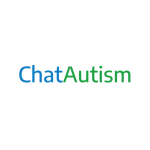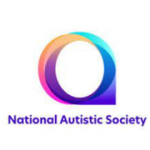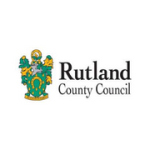This is helpful because:
- It can provide information that may help you/parent/carer/employer others to have a better understanding of you as an individual, and any needs you may have or any challenges. It can also highlight your strengths and any unique positive attributes you may have.
- It may correct a previous misdiagnosis and mean that any mental health problems can be better addressed.
- You may be able to access more social groups, magazines and online communities, although you don’t always need a diagnosis for this.
A diagnosis can also be a tool to access necessary support, benefits advice or adjustments that may be required whether at home, school, college, employment or in general.
How do I request an autism assessment?
You and/or your parent/trusted adult support will need to arrange an appointment with your GP who will then make a referral to Children’s adolescent mental health services (CAMHS).
To be considered for assessment, your school/college and you/your adult support will need to have provided evidence that suggests you may be showing signs and symptoms of autism. You are not able to self-refer to this service but talk to a trusted adult if you feel that you may be autistic.
Information required for the GP may be in relation to social communication, social interaction, rigid and repetitive behaviours, and sensory sensitivities looking at the impact it may be having on your daily function at home and at school/college
You, parents/carers and the school/college will need to complete some questionnaires to support the information.
It may take a few months for the service to send out a response following a referral with an appointment.
What happens during assessment?
If a referral is accepted, it may take some months to receive the first appointment.
Assessment will be completed either remotely, at the Valentines centre in Leicester or at an alternative centre. You will be informed where you need to go and be given directions.
The CAMHS team is a group of healthcare professionals who specialise in assessments for autism and other neurodivergent diagnosis. Neurodivergence is the term for when someone’s brain processes, learns, and/or behaves differently from what is considered “typical.”
The team includes consultant psychiatrists, psychologists, nurses, mental health practitioners, speech and language therapists, occupational therapists and peer mentors. They work with you and any adults who support you to create a joint plan to help you get the most appropriate support.
You will be seen by a health professional over a few appointments. Sometimes there will be two health professionals – they will introduce themselves. You will continue to see these same professionals during your assessment process.
If there are two professionals, one will meet with your parents/supporting adults and the other professional will meet with you. If there is only one professional, then they will meet with you together.
You will be offered some time to meet alone with a professional, but if you don’t want to, that’s absolutely fine.
You will be asked questions about how you are finding school/college. Things such as friendships, hobbies, sleep, diet, questions about how you relate to people, and any routines will be discussed with you. They will ask about any worries or difficulties with mood you are experiencing.
They will be asking questions to support the autism assessment but mainly to understand any difficulties and to identify the support you may benefit from.
You don’t have to answer any questions you don’t want to.
What happens after assessment?
What happens next will depend on the outcome of the assessment. There is a lot of evidence required to diagnose autism and this can take time.
Your parents and school/college may be asked to complete more questionnaires. All this information helps the team to come to a decision about whether you should have an autism diagnosis or if you maybe need some other support with your mental health from them or another area within the CAMHS team.
Whatever the outcome of your assessment, you will have an action plan to help you. Your Mental Health Professional might also speak to other people, like school/college or your GP or social worker to make sure they know the best way to support you.
What happens after diagnosis?
You will be offered a feedback appointment to go through the assessment and diagnosis. It’s an opportunity for you and your parents/trusted adult to ask questions and think about how to move forwards.
You will then receive a report that summarises all the information that has been gathered during the assessment process.
CAMHS currently offer an autism post diagnosis support called MyGuidance and are developing Parent Education Groups which will also be accessible online. They also send recommendations in a report and send a post diagnosis pack with signposting information to local and other services for support.
What can I do?
When you are seeking assessment or diagnosis for your child, there are some things you can do that will help the process:
- The health professionals will be asking questions to guide the assessment process however you can write down concerns if you feel this is helpful
- Sometimes having a list with you of concerns and things from your family history and early childhood development such as when you first walked and talked can be helpful to have as a reminder during the assessment.
- Consider some of the following and how these may affect different areas of your child’s life:
- Communication
- Social interaction
- Sensory difficulties
- Friendships
- Employment
- Need for routine
- Click here to view this video in Urdu/Hindi
- Click to here to view this video in Punjabi
- Click here to view this video in Gujarati
- Click here to view this video in Bengali
These videos were created in partnership between the University of Leicester and Leicestershire Partnership NHS Trust. They are hosted on an external provider so please be aware they may contain adverts.
Advice from the National Autistic Society
The National Autistic Society has a new ‘Advice Hub’ on their website which focuses on sharing information about diagnosis – before, during and after.
It has information for autistic adults and adults who think they might be autistic. It also has information for parents of children who are or might be autistic.
They are mostly written articles but there is also a small range of videos too










